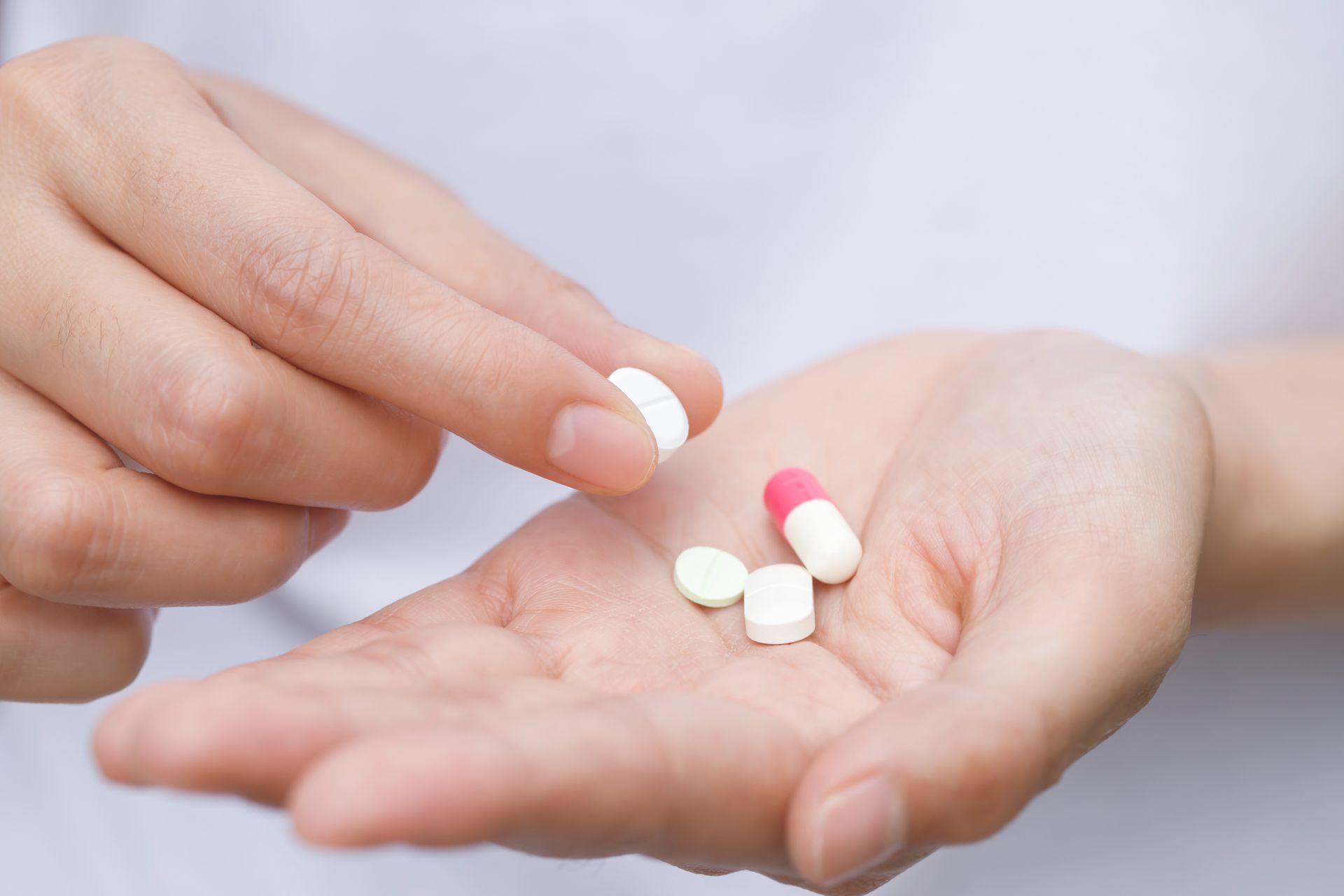Common Medication Myths Debunked

When it comes to medications, misinformation can lead to improper use, decreased effectiveness or even dangerous consequences. If you ever have any questions about medications you’re prescribed or want to ascertain the veracity of things you’ve been told about medication, we encourage you to speak with one of our St. Hope pharmacists.
There are many common myths out there about both over-the-counter and prescription medications. Some are partially true in specific contexts, while others are directionally false or misleading. The best tool to prevent medication mishaps is information, so be sure to do your own research.
Myth 1: Splitting Pills Is Always Safe and Saves Money
The Truth: While pill splitting might seem like an easy way to save money, not all medications can be safely split.
Certain tablets, like extended-release medications or those with a special coating, are designed to release their active ingredients gradually or protect your stomach from irritation. Splitting these pills can render them ineffective or harmful. Similarly, some medications have uneven active ingredient distribution, meaning one half of the pill might contain more of the drug than the other.
The effectiveness of a treatment plan is often dependent on the proper dosage being taken at specific intervals. For example, only taking a partial dose of an antibiotic may lead to insufficient bacterial eradication and cause the illness to linger, even if you eventually take all the antibiotics you were prescribed. Only taking partial steroidal medication doses can lead to similarly ineffective results when spread out rather than taken at the prescribed strengths and intervals. Failing to follow the tapering schedule can also lead to unpleasant withdrawal symptoms.
You should always consult with your doctor or pharmacist before splitting any medication. If cost is a concern, ask about alternative treatments or lower-cost options that are equally effective.
Myth 2: Generic Medications Are Inferior to Brand-Name Drugs
The Truth: Generic medications are just as effective as their brand-name counterparts.
Generics contain the same active ingredients, in the same strength and dosage, as brand-name medications. They must also meet rigorous FDA standards for safety, quality and efficacy. The main difference lies in the inactive ingredients, such as fillers or dyes, which rarely impact how the drug works for most people.
Pharmacists encourage patients to consider generics as a cost-effective and reliable option. If you have concerns about switching to a generic, your pharmacist can discuss any potential differences and reassure you about its safety.
Myth 3: You Can Stop Taking Antibiotics as Soon as You Feel Better
The Truth: Stopping antibiotics prematurely can lead to antibiotic resistance and a resurgence of the infection.
Even if symptoms improve, the underlying infection may not be completely eradicated. Ending treatment early allows surviving bacteria to develop resistance to the medication, making future infections harder to treat.
Pharmacists emphasize the importance of finishing the entire prescribed course of antibiotics unless directed otherwise by your healthcare provider. If you experience side effects, contact your doctor or pharmacist for advice instead of discontinuing the medication.
Myth 4: Alcohol and Medications Don’t Always Interact
The Truth: Alcohol can interact with many medications, often in unpredictable or harmful ways.
Some medications, like antibiotics, painkillers and antidepressants, can amplify the effects of alcohol, leading to side effects like dizziness, drowsiness or impaired motor skills. Others may cause dangerous reactions, such as liver damage or a sudden drop in blood pressure.
For example, mixing alcohol with acetaminophen (Tylenol) increases the risk of liver toxicity, while combining it with certain antidepressants can heighten sedation. Pharmacists recommend carefully reading labels and asking about alcohol interactions before drinking while taking any medication.
Myth 5: Over-the-Counter Medications Are Always Safe
The Truth: OTC medications can pose risks if not used correctly.
Although available without a prescription, OTC drugs like ibuprofen, cold medicine or antihistamines still have the potential for side effects, interactions and misuse. Taking more than the recommended dose, combining OTC drugs with prescription medications, or using them for extended periods without medical guidance can cause harm.
You should always read the packaging of OTC medication carefully and ask your pharmacist about proper dosing or potential drug interactions to ensure safe use.
Myth 6: Natural Supplements Are Safer Than Prescription Medications
The Truth: “Natural” doesn’t always mean “safe.”
Herbal supplements and vitamins are not as tightly regulated as prescription drugs, meaning their safety, efficacy and purity can vary widely. Additionally, supplements can interact with medications or medical conditions. For example, St. John’s Wort can reduce the effectiveness of birth control pills and antidepressants, while ginseng may interfere with blood sugar control in diabetics.
You should discuss any supplements you’re considering with a healthcare professional to make sure they’re safe and beneficial for your health needs. You can also ask your pharmacist if there are any known drug interactions with the medications you’re prescribed or OTC drugs you’re using.
Myth 7: Medications Lose Effectiveness Immediately After Their Expiration Date
The Truth: Expiration dates indicate when a medication’s potency may begin to decline, not when it becomes dangerous.
Most medications remain effective for some time past their expiration date, but this varies depending on storage conditions and the type of drug. However, some drugs, like liquid antibiotics, insulin or nitroglycerin, lose potency more quickly or spoil, and should not be used after their expiration date.
For example, particles can form in expired or improperly stored insulin, making it unsafe to inject and potentially increasing the risk of infection or irritation at the injection site.
In most circumstances, the safest thing to do with expired medication is to dispose of it. You can always ask a pharmacist if you’re unsure about the efficacy or safety of medication you have in your home.
Myth 8: You Don’t Need to Inform Your Doctor About OTC or Herbal Medicines
The Truth: Your healthcare provider needs a complete picture of all substances you take, including OTC medications and supplements.
Drug interactions aren’t limited to prescriptions. Over-the-counter medications, vitamins and herbal remedies can alter how prescription drugs work or lead to unexpected side effects. For example, taking aspirin with blood thinners increases the risk of bleeding, while grapefruit juice can interfere with medications like statins.
Pharmacists and doctors rely on accurate information to provide safe and effective treatment. Always disclose your complete medication list, including non-prescription products.
Need Expert Guidance for Your Medications in Houston, TX? We Can Help!
Whether you have questions about potential drug interactions, proper usage or alternative treatments, we’re here to help.
Contact our pharmacists at St. Hope Healthcare today for expert advice and personalized care.


